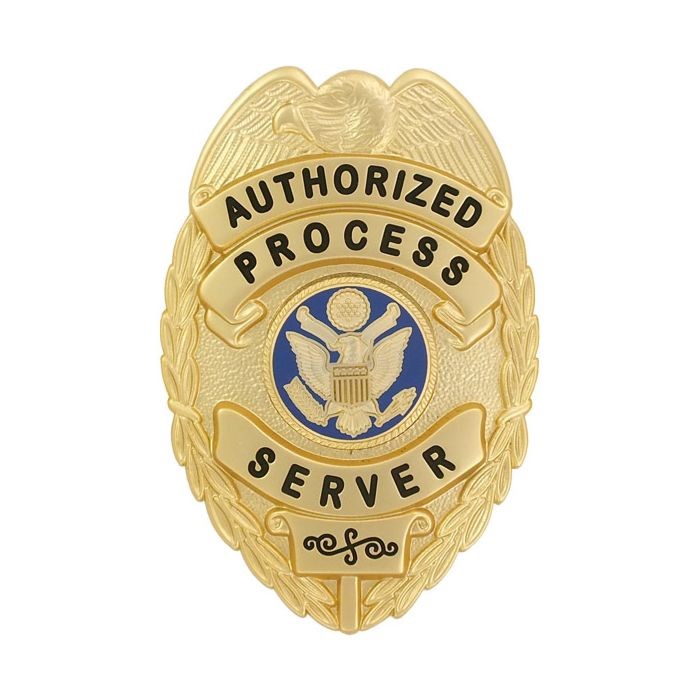What Is A Process Server Bond?
Ensuring Trustworthy Delivery: Understanding the California Process Server Bond
Serving legal documents is a crucial step in the legal process. Process servers, the individuals tasked with this responsibility, play a vital role in ensuring lawsuits proceed smoothly. To guarantee their adherence to legal protocols and protect those involved, California mandates a process server bond. This article delves deeper into the intricacies of this bond, exploring its purpose, implications, and the legalities that underpin it.
What is a California Process Server Bond?
A California process server bond is a surety bond mandated by the state’s Business and Professions Code (Section 22353). It serves as a financial guarantee for $2,000, valid for two years. This bond safeguards against potential harm caused by a process server’s negligence or misconduct. The bond is issued by a surety company, which essentially acts as a third-party guarantor. If a process server breaches their obligations and causes harm, the surety company may be required to use the bond amount to compensate the injured party.
Why is a Process Server Bond Required?
The process server bond serves two critical purposes, promoting both responsible conduct and protection for those involved in legal proceedings:
Ensuring Compliance: The bond compels process servers to follow established procedures for serving legal documents. These procedures are outlined in the California Code of Civil Procedure and encompass various aspects, including:
- Timely Delivery: Process servers must deliver documents within a specific timeframe as mandated by law. Delays can impact court schedules and prejudice the opposing party’s ability to respond.
- Correct Methods: There are different methods for serving legal documents, depending on the document type and the recipient’s situation. For instance, serving a summons requires personal delivery to the defendant, while subpoenas may be served on a representative. The process server bond ensures adherence to these designated methods.
- Specific Protocols: Each type of legal document may have specific protocols for serving. For example, serving a summons on a minor requires following specific procedures to ensure the document reaches the legal guardian. The bond discourages deviations from these protocols.
Protecting Involved Parties: If a process server makes a mistake, such as delivering a summons to the wrong person or failing to follow proper procedures, the bond safeguards those affected. The surety company that issues the bond may be required to use the bond amount to compensate for damages caused by the process server’s errors. Here are some potential scenarios where the bond might come into play:
- Wrongful Delivery: Delivering a legal document to the wrong person can significantly impact a lawsuit. The intended recipient may be unaware of the lawsuit and miss deadlines to respond, jeopardizing their rights. The bond can help compensate for such delays and ensure the lawsuit proceeds fairly.
- Improper Service: If a process server fails to follow proper serving procedures, the document may be deemed invalid by the court. This can cause delays and additional costs for the parties involved. The bond can help cover these unforeseen expenses.
- Negligence: In some cases, a process server’s negligence can lead to emotional distress or even financial losses. For example, a server might lose a crucial document or damage its contents due to carelessness. The bond can be used to compensate the affected party for such losses.
By requiring this bond, the state aims to instill trust in the process serving system and hold process servers accountable for their actions. This fosters a more efficient and fair legal process for all parties involved.
Obtaining a California Process Server Bond
The process of obtaining a California process server bond is relatively straightforward. Here’s a breakdown of the key steps:
- Find a Surety Company: Several surety companies offer process server bonds in California. Research and compare different companies to find one that offers competitive rates and a smooth application process.
- Complete the Application: The application for a process server bond typically requires basic information such as your name, business address, and Social Security number. You may also be asked about your experience as a process server and any relevant claims history.
- Pay the Premium: The premium for a process server bond is usually a small percentage of the bond amount (around $49 for the two-year term). This fee is paid to the surety company in exchange for issuing the bond.
- File the Bond: Once you receive the bond from the surety company, you need to file it with each county clerk’s office where you plan to operate. This ensures that the bond is valid in the specific jurisdictions where you’ll be serving legal documents.
Maintaining Compliance and Avoiding Bond Claims (continued)
- Stay Updated on Regulations: Process serving regulations can change over time. It’s crucial for process servers to stay informed about any updates to the California Code of Civil Procedure or relevant court rulings that may impact serving procedures. Attending workshops or subscribing to industry publications can help ensure you’re aware of the latest regulations.
- Maintain Detailed Records: Keeping meticulous records of your process serving activities is vital. This includes documenting the date and time of service, the method used, and the recipient’s name and signature (if applicable). Having comprehensive records provides evidence of proper service and protects you in case of disputes.
- Utilize Process Serving Software: Technology can be a valuable tool for process servers. Specialized software can streamline recordkeeping, ensure adherence to deadlines, and even offer GPS tracking to verify document delivery locations.
- Seek Professional Guidance: If you encounter any uncertainties or complex situations regarding serving legal documents, don’t hesitate to seek guidance from an attorney or a process serving professional association. Their expertise can help you navigate legal intricacies and avoid potential missteps.
The Legal Ramifications of Bond Claims
While a process server bond offers protection for those involved in lawsuits, it’s also important to understand the legal consequences of a bond claim being filed against you. Here’s a breakdown of what might happen:
- Investigation by the Surety Company: If a claim is filed against your bond, the surety company will investigate the situation to determine its validity. They will review the details of the case and assess whether your actions constituted a breach of your obligations as a process server.
- Potential Reimbursement: If the surety company determines the claim is valid, they may be required to use the bond amount to compensate the injured party. The surety company will then pursue legal action against you to recoup their financial losses. This could involve a lawsuit or other collection efforts.
- License Suspension or Revocation: A bond claim against you might also prompt the California Secretary of State to investigate your process server registration. Depending on the severity of the situation, your license to operate as a process server could be suspended or even revoked.
These potential consequences highlight the importance of taking your responsibilities as a process server seriously. Following proper procedures, maintaining accurate records, and seeking guidance when needed can significantly reduce the risk of bond claims and legal repercussions.
Conclusion
The California process server bond serves a critical role in ensuring the integrity and fairness of the legal process. By requiring this financial guarantee, the state compels process servers to operate ethically and upholds a safety net for those involved in lawsuits. Understanding the purpose, implications, and legalities surrounding this bond empowers both process servers and those interacting with the legal system. For process servers, maintaining a commitment to compliance and ethical practices remains paramount in fostering trust and avoiding potential legal ramifications.
This article has explored the California process server bond in detail, aiming to provide valuable insights for anyone seeking to understand its significance within the legal landscape.

Best Private Investigators in Sacramento
Best Private Investigators in Sacramento Finding the right private investigator in Sacramento matters. Whether you are dealing with a family issue, a legal case, or

Become a Process Server California: Your Guide to Starting a Career
Embarking on a career as a process server in California holds the promise of an interesting and essential role within the legal system. In my

Become a Process Server in California: Your Step-by-Step Guide
How to Become a Process Server in California Becoming a process server in California is a great way to work in the legal field without

California Process Servers License: How to Obtain Certification
Obtaining a license as a process server in California reflects a commitment to both legal protocol and ethical conduct within the field of law. I

Process Server Training California: Your Path to Professional Certification
As a professional in the legal field, my experience has shown that the role of a process server is vital. Serving legal documents is an

Process Server Certification California: Your Guide to Becoming a Legal Courier
Becoming a certified process server in California is an important step for those looking to serve legal documents professionally. This role is essential within the
